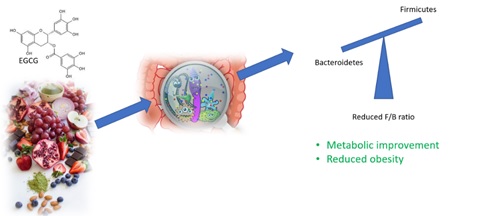Do you:
- Feel easily bloated when consuming prebiotic-rich foods and prebiotic supplements?
- Feel desperately in need of support for gut and immune health?
- Eat lots of potentially carcinogenic foods?
FINDING ANSWERS IN PLANT FOOD
It turns out that the answer has been ‘hiding in plain sight’ – in the form of dietary polyphenols. The traditional Mediterranean diet includes 4-5 times more plant foods than does the standard Western diet; it is here that the remarkable polyphenols abound. The health-promoting Mediterranean is not just due to olive oil and red wine – it is probably more due to the large quantities and wide variety of colourful fruits and vegetables that characterizes this diet.
SHOULD WE EAT MORE PLANT FOODS?
A review of the science would tell us that the answer is a resounding YES! Of the thousands of chemicals (phytochemicals) found in plant food, about 80% of them are the POLY-PHENOLS, large bulky molecules with limited ability to be absorbed.
POORLY ABSORBED?
Then if they are not well-absorbed, how can they be of benefit? There is a simple answer to this; where we used to think that polyphenols had to be absorbed to be effective, we now know that most of the work they do is in the gut.
WHAT HAPPENS TO POLYPHENOLS IN THE GUT?
As the food digests and the polyphenols are released, they are involved in 3 key processes:
DIRECT GUT LUMEN ANTIOXIDANTS
Because polyphenols are too large to be absorbed in significant quantity into the bloodstream, they do not perform any antioxidant effect there. However, because they are in close contact with food elements in the gut lumen, they can directly scavenge radical species they encounter. In this way, they can reduce the carcinogenic potential of foods like barbecued meats and certain food additives.
PREBIOTIC FOOD FOR THE MICROBIOTA
Little-known is the fact that polyphenols live in a reciprocal relationship with the microbiota. The advantage is that in patient who become bloated from carbohydrate prebiotic foods and supplements, the polyphenols provide an interim solution until the patient can tolerate the carbohydrate sources.
- The microbiota ‘digest’ the polyphenols, using them as a source of food and energy; the polyphenols are therefore prebiotic. This allows desirable commensal microbes like Bifidobacteraceae and Lactobacillaceae to flourish.
- The polyphenols are degraded by bacteria into a range of metabolites, many small enough to be absorbed where they can exhibit signaling effects within cells.
ENHANCING THE GUT BARRIER FUNCTION & SYSTEMIC FUNCTION
As a result of having a marked beneficial effect upon gut barrier function and levels of secretory IgA and mucins, polyphenol intake contributes fundamentally to the function of our innate defenses. Polyphenols, via their metabolites, have been shown to benefit cardiovascular health, and other chronic diseases by modulating enzyme activity and signaling pathways.

Figure 1: Polyphenols provide essential prebiotic food for the microbiota, enhancing the growth of desirable species over less desirable. As the polyphenols are degraded into smaller fragments by the microbiota, some can be absorbed, thereby contributing to systemic effects that can benefit cardiovascular and metabolic conditions.
CONCLUSION: Despite being poorly absorbed polyphenols certainly offer much potential benefit and should be considered as a valid marker for a health promoting diet.
In summary, a diet rich in polyphenols provides
- Strong antioxidant effect in the gut lumen
- Well tolerated prebiotic effects
- Improved gut barrier function via increased expression of tight junction proteins
- Modulating effect on microbiome with a shift towards protective species
- Increased secretory IgA production
- Increased mucin production.
Reference: Plamada D, Vodnar DC. Polyphenols-Gut Microbiota Interrelationship: A Transition to a New Generation of Prebiotics. Nutrients. 2021 Dec 28;14(1):137. doi: 10.3390/nu14010137. PMID: 35011012; PMCID: PMC8747136.

